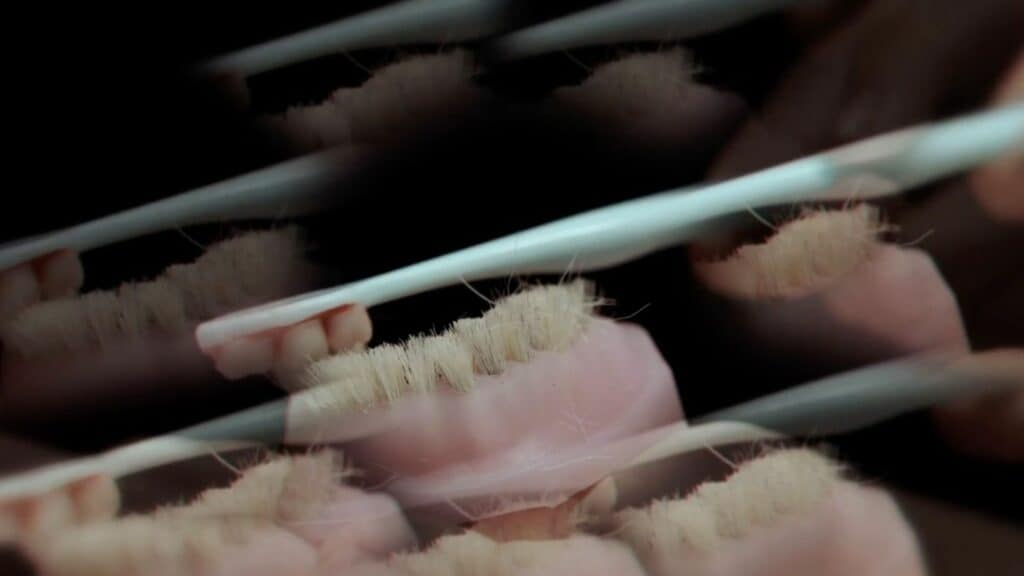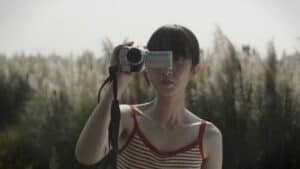Contact Lens (He ma pi fu) is the first feature by Ruiqi Lu. Everything is blurry; a girl puts on her contact lenses, and everything takes shape. The protagonist lives in a small apartment and is used to a routine life. Said apartment has a unique feature: a Chinese version (reenactment?) of the female main character in Chantal Akerman’s Jeanne Dielman, 23 quai du Commerce, 1080 Bruxelles, which is projected on her wall, or maybe even an inherent part of the space? What is the relationship between Akerman’s film, which reached unfortunate notoriety due to an inept poll, and this new work? Several comments on Akerman’s film have been myopic in the sense of attitude.
The director has described the film as “imagining the emancipation of women from the confines of narrow spaces and the tedium of routine lives.” She says this led her to make a playful film about breaking away from these physical and symbolic confines. The operative word here is playful. Lu is constantly toying with lenses and perspectives in a manner that is akin to the founder’s joy of early cinema like Méliès. At 78 minutes, the duration is actually closer to his works than to Akerman’s film. We are far apart from a drab essay of womanhood as we were subjected to in Cannes. Contact Lens is a film made with scant resources but a huge enthusiasm for cinema.

Akerman has often been reduced to a feminist director, regardless of how frequently she tried to stress the formal aspects of her work. Given that she was one of cinema’s most supreme formalists, this is sad and an indicator of where film criticism has been heading in the last decades. Another peculiar misconception is regarding her comments about the passage of time1.Some interpretations have sounded as inept as a recent presidential candidate. Akerman is due for a reexamination without a Sight and Sound as blind as a bat, but that is the topic for another text.
Is a Contact Lens on or off-putting?
When the director names her influences, she also mentions Dario Argento and Brian De Palma, neither of whom are primarily described as feminist icons. Contact Lens is as steeped in cinephilia as in feminism, and the latter is of the Vardaesque, joyful kind. The aforementioned playfulness extends to the sound design. One example involves eating a crab, yet another effect made me think about last year’s THE END. A more practical impact on the film arose when the director watched a film on her laptop, saw her own reflection and had the sensation of seeing herself in the film. That experience illuminated (no pun intended) the construction of the film as well.

The film has been labelled “the most (hypnotically) fascinating film” in the Rebels With a Cause section by its curator, Javier Garcia Puerto. Be that as it may, Contact Lens is a highly promising first feature and Ruiqi Lu is a director to follow. Contact Lens was screened in the Rebels With a Cause section at the Black Nights Film Festival, where it won The Best Director Award. The jury gave the prize for “its meticulous research on the meta-visual and for its aesthetic precision.” I couldn’t agree more.
Contact Lens

Director: Ruiqi Lu
Date Created: 2025-07-11 03:50
3.5
Pros
- Interesting concept well delivered
- Very promising first film
Cons
- None, considering the budget.

